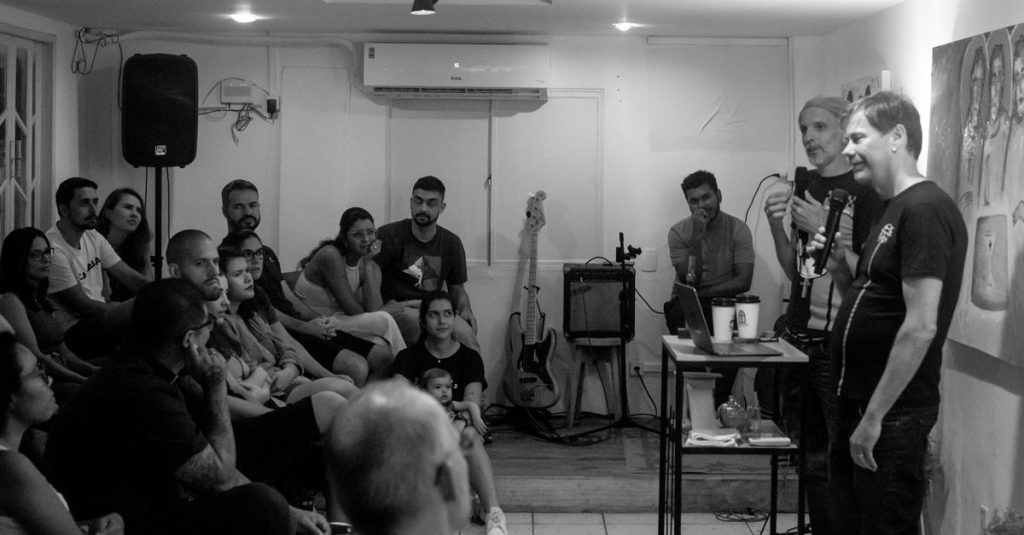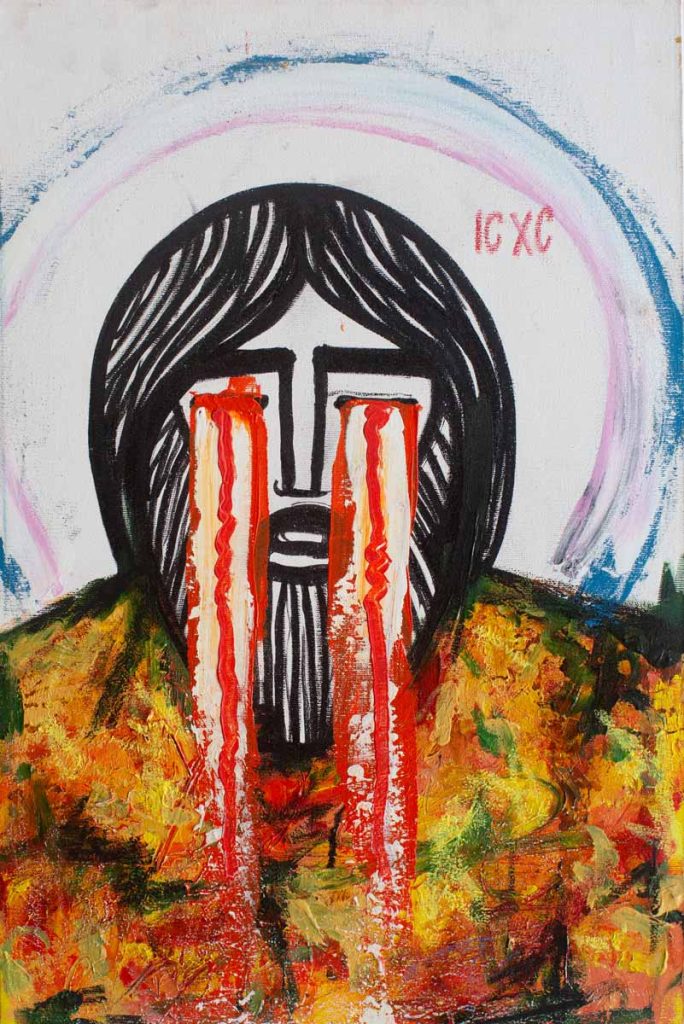Pioneering ripples in Brazil
Pioneering ripples in Brazil
At the end of April a group of Latin American pioneers, representatives of partner organisations, CMS people in mission and staff met in Indaiatuba, Brazil, for a design lab looking at pioneering mission in Latin America.
by Jonny Baker,
It was a joy to travel to Brazil with CMS recently. I was at a gathering CMS were hosting which was exploring how to catalyse or encourage pioneering mission across Latin America. The reason I was there was to share from our experience over the last 20 years or so.
It was my first visit to South or Central America. The gathering was in Portuguese and Spanish with someone whispering translation to me in English. There were people there from several countries in South and Central America and the Latin diaspora.
I always think if you want to see something like that step one is finding out where the practice is or another way of putting it is sniffing out the pioneers.
The good news is that there were people there doing amazing things with people at the edges, ranging from work with young people in gangs in Honduras, icafe (a cafe, church, exhibition space orbiting around artists) in Peru, church on the streets with homeless guys in Guatemala, social supermarket type thing in Brazil, a project in a park in Indaiatuba that runs through the centre of the city – we got to visit and see that in action – and so on. It was great to see this practice and hear people sharing about it.

I also got to visit Vitoria and see two creative young church communities – they reminded me very much of alternative worship and emerging churches. I think this is fairly unusual in Brazil (though as it was my first visit I may be speaking out of turn). I spoke at one of the churches and shared some photos of Grace, the church I am part of and it was wonderful to see the reaction from people realising there were other creative communities out there. They are not alone.

One of the extraordinary things in the first church was an exhibition of art by Eric Rodrigues who started the churches and is a bishop there. He is not your typical bishop and told me how he used to be a punk and with his tattoos and piercings was regularly kept from being allowed to attend churches. But his determination won through.
The paintings were a sort of iconography almost, really good. What I loved about them was the sense of connection to the local culture and place, and just their wonderful originality. I think this sort of soulful artful expression in paint, photography, liturgy, art, prayer is so important. My expectation I admit is generally low – I expect to bump into something generic, something corporate, something being sold as contemporary but that actually can easily be quite lacking in soul, or perhaps another way of saying it is that it can feel extracted from a place or context, or landed in from elsewhere. So it’s always good to be surprised.

It’s funny when you come in as an outsider. I have been inspired by liberation theology over the years and we encourage our pioneer students to engage with it, but that seemed to be viewed with suspicion.
I have also been inspired by the likes of Rene Padilla, Samuel Escobar and others and the development of integral mission which has had a significant global impact. A year so so back I read Escobar’s In Search of Christ in Latin America which I found very helpful. Again it felt like those I met were a bit suspicious of that for different reasons which was not what I expected.
Someone said to me that their favourite theologian was John Stott, which I found odd I suppose. I read his books when I was a student and they were fine at the time but that was a long time ago. The world has changed and he is not Brazilian or indeed from any other Portuguese or Spanish speaking context!
Our experience with pioneers is that as well as the practice of connecting with people at the edges you have to do theological work to help people discover Christ who relates to them and their culture rather than who seems somehow aloof or foreign. So I hope that what kicks off will catalyse some theological imagination that finds ways to celebrate the cultures and do things from the inside of them. I am thinking out loud but it was the visit to Vitoria that gave me hope that that is possible in the landscape there and that perhaps it will be the poets, prophets and artists who point the way.

The week itself was really a design lab, or what in our team we call a dreaming space, with flipcharts and scribblings on pieces of paper filling all the walls, pondering how to take things forward, catalyse more practice, build movement and so on. It reminded me of when we dreamed up pioneer training with a group back in 2009 in similar fashion and look what happened as a result of that!
It was such a joy for me to see what is emerging and to sense that it is at least in part as a result of some ripples of the pioneering practice and movement we have contributed to over the last 20 years or so. Watch this space I guess.
I also had a new experience of getting stuck in a lift for an hour which is what this photo is. We look like we’re having fun but it was a bit warm in there so good to be let out!